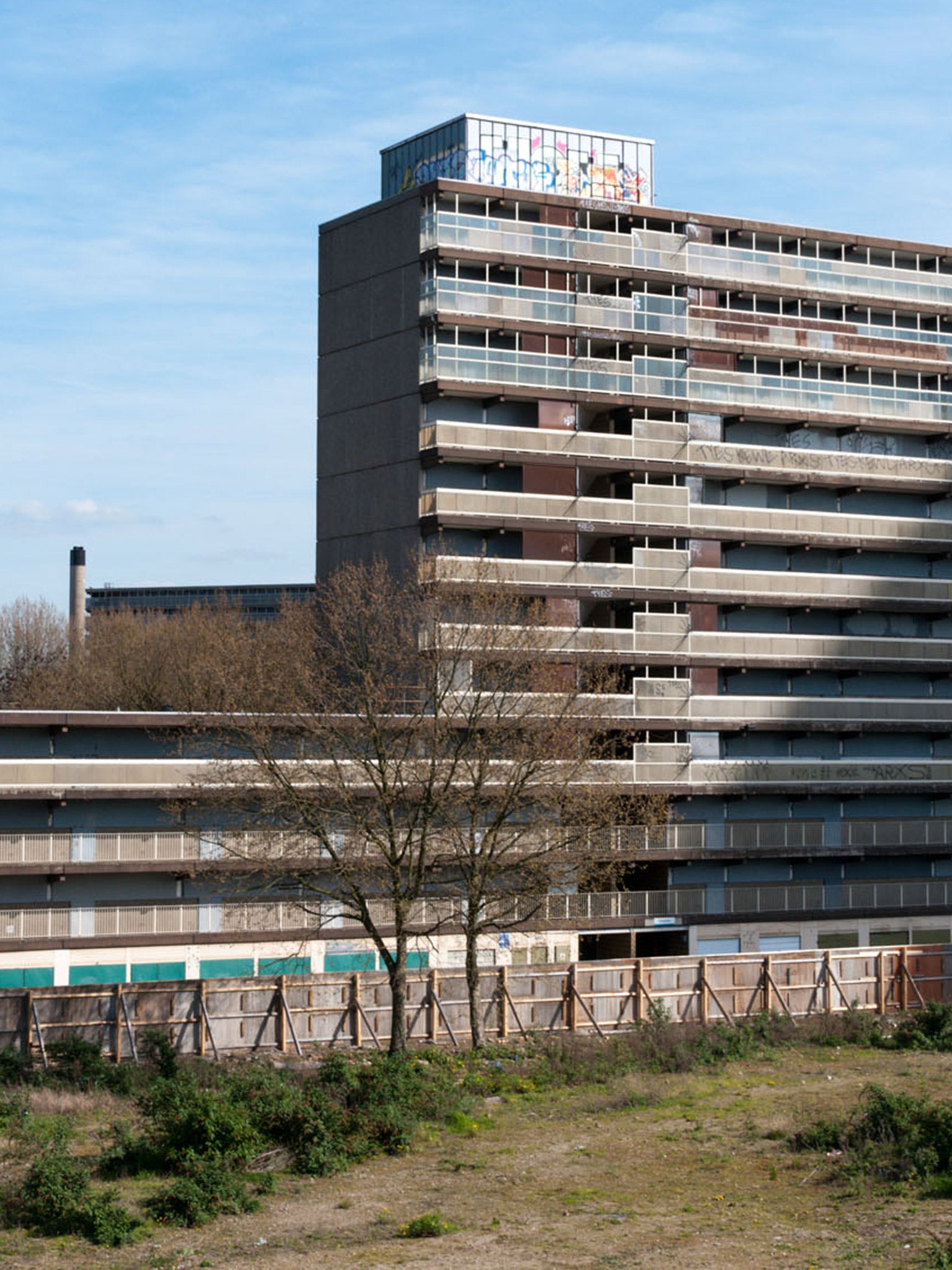£1.5bn revamp of sink estate reveals 'social cleansing' plan

Your support helps us to tell the story
From reproductive rights to climate change to Big Tech, The Independent is on the ground when the story is developing. Whether it's investigating the financials of Elon Musk's pro-Trump PAC or producing our latest documentary, 'The A Word', which shines a light on the American women fighting for reproductive rights, we know how important it is to parse out the facts from the messaging.
At such a critical moment in US history, we need reporters on the ground. Your donation allows us to keep sending journalists to speak to both sides of the story.
The Independent is trusted by Americans across the entire political spectrum. And unlike many other quality news outlets, we choose not to lock Americans out of our reporting and analysis with paywalls. We believe quality journalism should be available to everyone, paid for by those who can afford it.
Your support makes all the difference.A council stands accused of using a £1.5bn regeneration scheme to cleanse one of Europe’s biggest housing estates of poor families after it emerged that just 79 of the 2,535 new homes on the site will be flats available to rent as social housing.
More than 1,200 residents of the Heygate Estate in Walworth, south London, were evicted in 2010 so that its neo-brutalist 1970s blocks could be bulldozed to make way for better quality, affordable homes as part of the Elephant & Castle redevelopment. The estate had become the dark face of urban degeneration and a backdrop to such films as Attack The Block, Shank and the crime drama Harry Brown.
But Southwark Council accidentally revealed this week how few of the new homes are earmarked as social rented units under its deal with property giant Lend Lease, when an edited copy of its confidential agreement was uploaded to the authority’s website.
The document, which has since been removed, had sensitive sections blacked out but it was possible to copy and paste these blocks of text into word-processing software to reveal the redacted words.
The report revealed that, having spent £44m pulling down the estate, Southwark will receive only £50m in return for the 22-acre site. The vast majority of the 2,535 new homes will be sold privately. Demolition, which began in 2011, is being stepped up, with the aim of the first buyers moving in at the end of 2015.
The Labour-run council said it was investigating how the 97-page file was made public, but Cllr Fiona Colley, a cabinet member for regeneration, told The Independent: “We are very happy with the deal we’ve done.”
She insisted that the profit-sharing agreement would ensure residents and the council “could get a good deal” over the next 15 years if the property market improved. She also pointed to 512 new “affordable housing units” which had been created in the area, although the number still falls short of the council’s original pledge to ensure that 35 per cent of the new development would be affordable.
In 2010, the council argued that the Heygate, completed in 1974, had become so rundown and crime-ridden that it was not worth maintaining. The deputy leader, Kim Humphreys, said: “We are not in the business of gentrification. We want to transform the site and make the community there have a sustainable future.”
While many residents were happy to leave, 85 people refused to vacate their homes until compulsory orders were issued. At the time, tenants told The Independent they feared they would be simply shipped, as one resident put it, “from one dump to another”. The campaign group 35 Per Cent – named after the portion of affordable housing the council had promised to deliver in place of the Heygate – lobbied for “open master-planning, benefits for all and housing that really is affordable”.
The rights activist Peter Tatchell, who lived on a neighbouring estate for more than 30 years, said: “This leak proves what we suspected all along. A dodgy deal has been done which short-changes Southwark Council and local tenants.
“Heygate residents have been treated like small change on a Monopoly board. The whole community has been dislocated for the sake of grandiose promises of a better social good that his now revealed to be a gigantic deception.”
Ms Colley insisted: “Some people are not happy – but some people are very happy with their brand new, affordable homes.”
Join our commenting forum
Join thought-provoking conversations, follow other Independent readers and see their replies
Comments